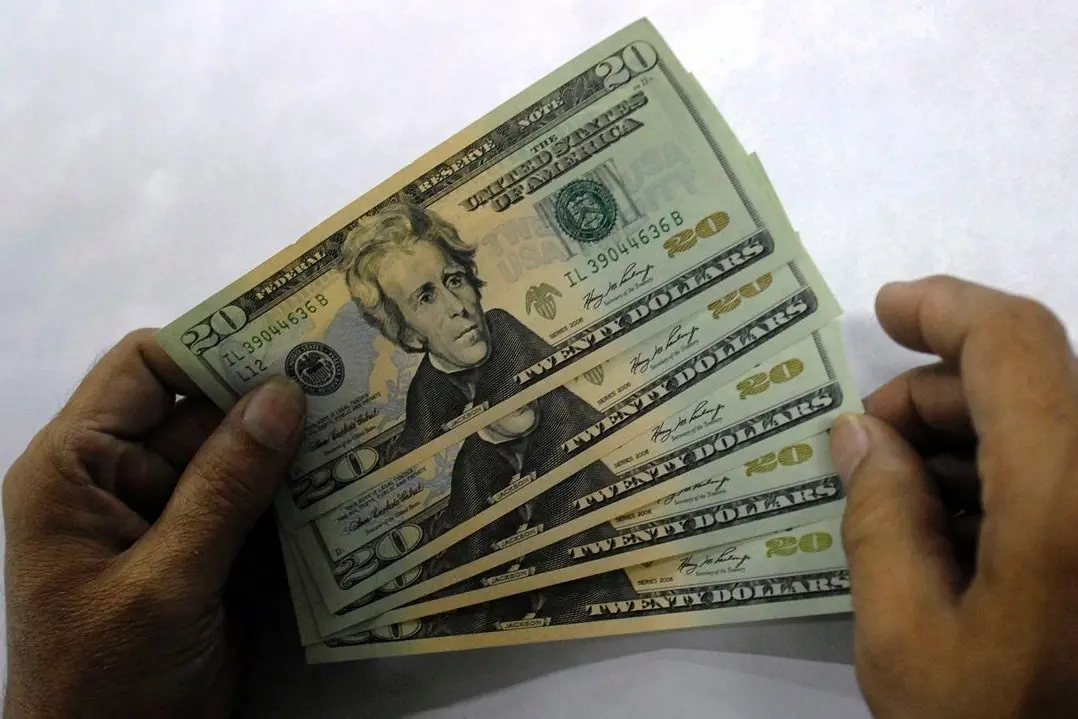PHOTO
LONDON- The dollar fell to a six-day low on Tuesday as investors unwound long bets on the currency, anticipating the Federal Reserve may slow the pace of interest rate hikes after this week's meeting.
A rout on Wall Street hastened by recent weak economic data globally has bolstered the view that the Fed's widely-expected rate hike on Wednesday could mark the end of three years of steady rate increases.
Some investors are starting to question whether the dollar's run as the best performing major currency will continue into 2019.
Investor confidence has deteriorated, leading to the gloomiest outlook for the world economy in a decade, a survey by Bank of America Merrill Lynch found.
The dollar has replaced technology stocks as the most crowded trade for the first time since January, it said.
Risk-off sentiment on Tuesday lifted the Japanese yen and the Swiss franc but the dollar did not benefit from the flight to safety.
"U.S. central bankers are experiencing strong headwinds for their rate hike plans... that hinders the dollar and poses the question whether it can reign supreme next year," said Thu Lan Nguyen, an FX strategist at Commerzbank in Germany.
With the prospect of a "dovish rate hike" keeping the dollar in check, the euro on Tuesday rose half a percent to scale $1.14. The single currency has recovered all of its losses from Monday when it was hit by weak euro zone data.
Still, the European Central Bank's assessment last week that the balance of risks was moving to the downside, combined with protests in France weighing on business, means that euro appreciation is still a few months away, according to Goldman Sachs analysts.
The dollar index was 0.4 percent lower at 96.699, a six-day low.
Markets will scrutinise the Fed's two-day policy meeting, which starts on Tuesday, for its sense of how the U.S. economy is holding up amid a U.S.-China trade conflict and global financial market volatility.
Last week, the dollar enjoyed its best weekly performance since September, reaching an 18-month high.
Some analysts think dollar strength can return if the Fed remains relatively confident about next year's monetary tightening path.
"Personally, I think the Fed will continue to normalize policy next year and I don’t think it will send the U.S. economy into recession," said ACLS analyst Marshall Gittler.
"An economy where there are more job offers than unemployed persons doesn't need such super-stimulus. That's why I remain bullish on the dollar," he added.
U.S. President Donald Trump, in a tweet overnight, took another swipe at the Fed saying it was "incredible" for the central bank to even consider tightening given the global economic and political uncertainties.
The markets, however, looked past Trump's now-familiar comments on the Fed.
The yen gained half a percent on the dollar as investors' fears of slowing global growth increased demand for safety assets. The Swiss franc strengthened by 0.3 percent.
Sterling, which has been heavily sold off in the past few months on Brexit uncertainty, rose 0.7 percent to $1.2706, helped by a weaker dollar and confirmation British Prime Minister Theresa May will seek parliamentary approval for her much-criticised Brexit deal in mid-January.
The kiwi firmed to $0.6845, buoyed in part by improved business confidence data.
(Reporting by Tom Finn Additional reporting Vatsal Srivastava Editing by Andrew Heavens and Susan Fenton) ((tom.finn@tr.com; +44 2075427508; Reuters Messaging: tom.finn.reuters.com@reuters.net))





















